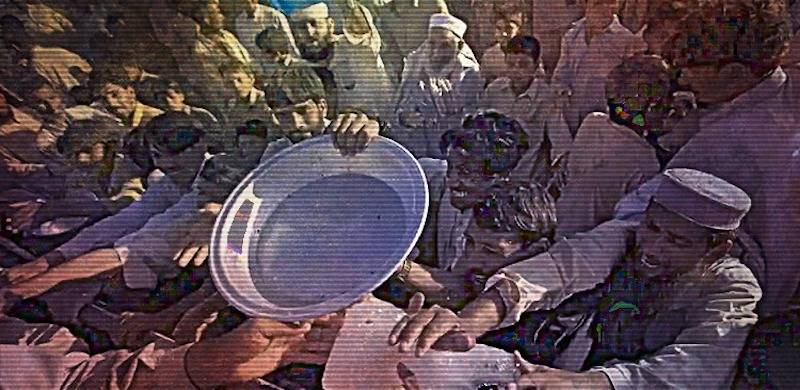
Although a much-needed transition from PTI to PML-N has taken place (amidst great drama of Shakespearean proportions), the uncertainties plaguing the Pakistani economy are highly unlikely to recede anytime soon. It’s instructive, thus, to briefly analyse the challenges that lie ahead.
Let’s start with some of the recent happenings to get a sense of where we stand. In the past two weeks, $4.4 billion were rescheduled on Pakistan’s request ($2.4 billion by China, and $2 billion by UAE). Loan rescheduling indicates a country’s inability to pay on time. Read this with the widening trade gap that stood at above $30 billion in first 9 months of ongoing fiscal and it doesn’t make for a good reading on the external front.
Moreover, as uncertainty gripped Pakistan for the last few months, money started flowing out of Pakistan. In March, reports suggest that a net amount of more than $ 1 billion was taken out by investors! For a country that hardly attracts that much in FDI (on net), this all presents a worrying picture given our external debt obligations.
And although the rupee has recovered from an alarming nosedive, steadying at Rs. 183 against the dollar, the damage in between was significant. For context, every unit loss against the dollar adds Rs. 85 billion or more to our total debt and liabilities, besides making imports expensive (which directly affects our growth prospects). This comes in the backdrop of recently released figures showing public debt at Rs. 42.76 trillion by end of February, so surely it has gone up by over few hundred billion rupees by now.
On the domestic front, ‘relief package’ of the PTI left a serious hole in the government’s already troubled finances. Reportedly, OGRA relayed that it is unsustainable since the subsidy on petroleum products is costing Rs. 63 billion per day. Therefore, they recommended ending subsidy and pricing petrol at Rs. 213/ ltr.
This kind of challenging economic situation can have many spillovers ranging from internal and external issues. Our credit worthiness and reliability in international markets is nothing to cheer about, taking further hit due to recent political turmoil. The asking bid for Pak’s Eurobond climbed steeply, above 15% (compare to 8% few months ago), and the treasuries at home have breached the 13 percent mark.
Further, NPCC, for e.g, has warned of severe fuel shortages in coming days, which will affect electricity production. That’s because the fuel suppliers are vary of Pakistan’s paying capacity as dollars flow out and we only have two month of reserves left for imports.
Mind you, it doesn’t stop at fuel! It applies equally to other commodities like wheat and pulses which we’ll have to import to avert food shortages. Similarly, think about other stuff that’s necessary for Pakistani economy. Medicines, for e.g, use 95% imported raw material for production. Another botched up refund policy (the government doesn’t have the money for refunds) means that pharma industry remains unpaid, which means they won’t be able to pay suppliers, which means suppliers would stop supply — creating yet another shortage of critically needed medicines.
There are also reports that hospitals have stopped treating people on Sehat Cards because payments to vendors have not been made for a month or two. Probability is that the money was diverted to fund subsidy. Also, as uncertainty increases, so does smuggling into the country and outside of the country. As food inflation has galloped with little inclination of stopping, and imports becoming more problematic, hoarding will kick in (if it already hasn’t). This will encourage smuggling, especially of cheaper stuff.
The smuggling of cheap Iranian oil and cooking oil has jumped manifold as uncertainty has grown. It’s but natural that major portion of population will prefer cheaper, imported variety as wages haven’t kept up pace with food inflation which is usually the case in Pakistan. Consequences include more nutritional deficiencies and hunger.
There are also reports that hospitals have stopped treating people on Sehat Cards because payments to vendors have not been made for a month or two. Probability is that the money was diverted to fund subsidy.
And as the dust settles down, Pakistan would have lost some portion of its expected GDP growth rate. Overall, total debt and liabilities would hit a new record high. And we’ll have more precarious finances than before. One outcome of the present situation, when it does assume some proportion of normality is that the aggregate market clearance equilibrium would settle at higher nominal rates! Translation- From dollar to food prices, everything will be priced higher.
Then there are other outcomes, like PSDP expense will be significantly curtailed (feeding into low GDP) and the shadow/ informal economy would grow accompanied. Also expect more indirect/regressive taxes as the next government tries to plug the gaping fiscal hole that keeps getting wider. Worsening fiscal and external profile would imply higher interest payment on domestic plus external debt, already comfortably above Rs. 2 trillion yearly (mind you, many rescheduled loans, like those of Covid-19 would come due).
The IMF program would resume, but under even more tough circumstances, so expect more hikes in petrol, electricity, gas and other utility prices, which sits nicely with the above prediction of economy settling at a higher priced clearing equilibrium. Also expect the government to keep expenses at par by resorting to higher money supply, which will ultimately end up sustaining higher inflation in the future.
The Current Account (CA) deficit would probably come down! As GDP rate lessens and other issues (like payments to vendors) kick in, the pace of imports is likely to slow down. But do notice that the improving CA depends heavily on the assumption that our biggest exporters (US and EU) will ignore our recent diatribes against their alleged involvement in Pakistan’s affairs. If, God forbid, they decide to teach us a lesson (say, by cancelling GSP Plus), then we would be staring at a deep abyss.
All in all, there is good probability of tougher times ahead.

